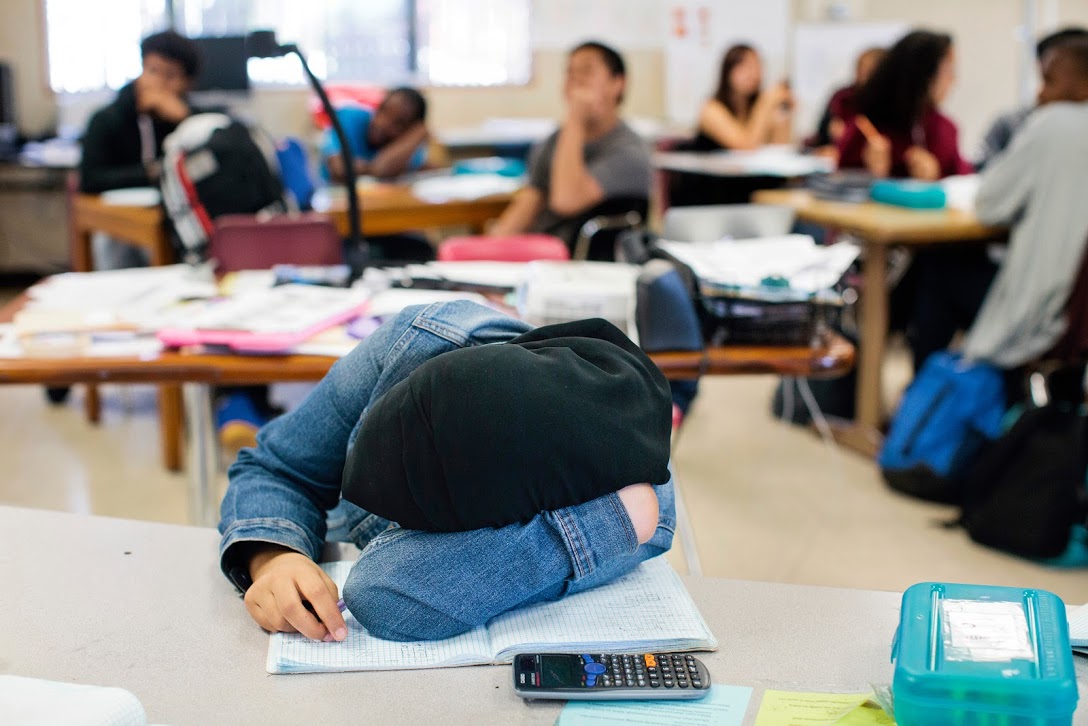While California legislators debate a bill to ban secondary schools from starting before 8:30 a.m., a new report shows the change could contribute $10.2 billion to the state’s economy within 10 years and $24.8 billion after two decades.
In fact, if all schools nationwide were to convert to this later start time, the RANDCorporation and RAND Europe found that the U.S. economy would get an $83 billion boost within a decade.
The RAND report released Wednesday is the first-ever economic analysis of 47 states based on a shift in school start times. It is a follow-up to research by RAND Europe in 2016 that found insufficient sleep among U.S. workers causes economic losses of up to $411 billion a year.
The report comes just as the California Assembly Appropriations Committee is planning to vote on SB 328 — the later school start time bill — on Friday. The Senate has already approved the bill, which could go to a full vote in the Assembly if the committee gives it a thumbs-up.
Related

Later School Start Bill Moves Forward
The economic estimates are based in part on the projected higher academic performance of students including higher graduation rates, along with reduced car crash rates from accidents caused by drowsy teen drivers.
The study also includes a cost-benefit ratio based on increased costs due to changing bus schedules and adding athletic field lights for nighttime games, said Wendy Troxel, a sleep researcher at RAND who co-authored the report.
Based on these estimates, RAND projects that California schools would break even after two years and would reap $3.55 in cost benefits for every dollar spent after 20 years, she said.
“Within five years, the benefits outweigh costs 2 to 1,” she said. “Quantifying these benefits is so important because one of the big challenges in implementing later start times — despite the public health research — is the concern about cost. Really up to this point, there had not been data to quantify the costs or the benefits.”
Sleep research shows that around the time of puberty, teenagers experience a delay of about two hours in their biological clocks, which determines when they feel awake and when they feel sleepy, Troxel said. This is based on the hormone melatonin, she explained.
“Effectively, this means most teenagers don’t even feel sleepy until about 11 p.m. and the peak levels persist until the early morning hours, right when we’re trying to wake our children and get them out of bed,” she said. “A 6 a.m. wake-up time is the biological equivalent of waking an adult up at 4 a.m., because of that melatonin shift.”
It is recommended that teens get a minimum of eight to 10 hours of sleep, she said, adding that less sleep also deprives them of rapid eye movement sleep that is associated with learning, memory and emotional processing — “the building blocks of effective learning.”
Although public health research has also shown that sleep deprivation in teens can lead to suicidal thoughts and obesity, Troxel said the RAND study did not take those into consideration because they were too difficult to quantify economically.
“If anything,” she said, “these are underestimates.”

You need to be a member of School Leadership 2.0 to add comments!
Join School Leadership 2.0